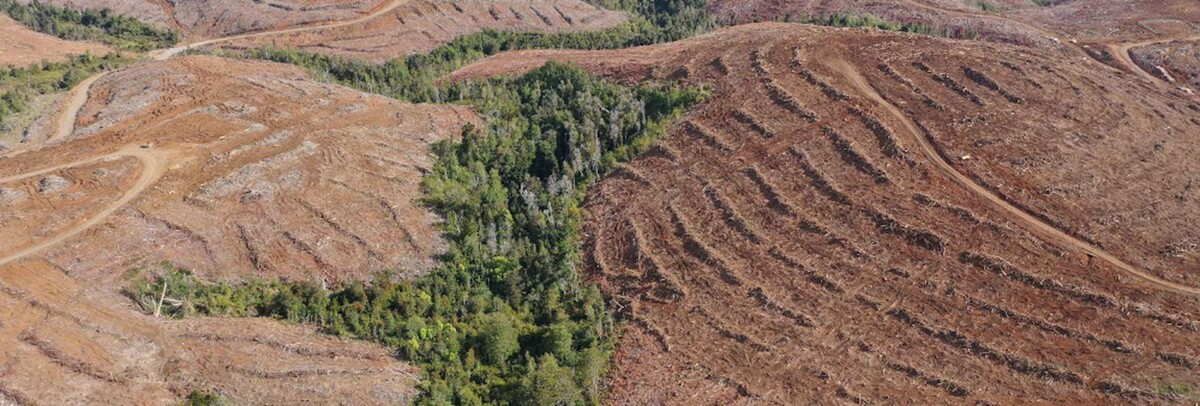
Mapuche activists have stated that the process they have experienced constitutes genocide, an attempt at physical and cultural extermination of the people that the State of Chile does not acknowledge to this day. With the arrival of Pinochet’s military dictatorship, forestry companies expanded and seized more land from the Mapuche communities. Margarita Pailaya Huenchunao, a recognized lawentuchefe and Mapuche speaker, illustrates in this interview the profound impact of pine and eucalyptus plantations on her territory, culture, and health.
The incursion of monoculture forestry has radically transformed the landscape, drying up sources of life such as rivers and streams that were once vital. Traditional Mapuche medicine, based on the knowledge of the healing properties of native plants, has been severely affected. Her words, filled with pain and hope, urge reflection on the forestry model in Chile and Mapuche territory.
Chile and Wallmapu have a long forestry and cultural history in relation to the forest. Despite the empire recognizing the self-determination of the Mapuche people after several battles, the State has preferred military intervention over other solutions to address the forestry conflict in the region. Margarita Pailaya Huenchunao, Lawentuchefe and wise woman of Mapuche medicine, shares her testimony about the impacts of monoculture in Tirúa, the heart of Mapuche territory in the province of Arauco.
The disappearance of a world where eucalyptus plants have displaced water. Pine and eucalyptus plantations have altered the environment that provided food, medicine, and ceremonial spaces for the Mapuche people. Currently, the Mapuche communities question the usurpation of their lands and the effects of monoculture in the region.
The Boric government is carrying out an "Industrial Strengthening Plan for Biobío" that includes planting more pine and eucalyptus, despite criticism from the communities. Margarita Pailaya Huenchunao exposes the human dimension of the socio-environmental crisis they face, highlighting how forestry companies have caused damage to food production, craftsmanship, and the social and cultural fabric of the Mapuche.
Despite the challenges, the Mapuche communities continue to resist and fight for the defense of their territory and culture. The recovery of native seeds, the promotion of organic agriculture, and the defense of collective rights are strategies they implement in search of a more sustainable future. The fight to halt the expansion of forestry monoculture becomes crucial to avoid greater socioeconomic and environmental impacts in the Mapuche and Chilean regions.










